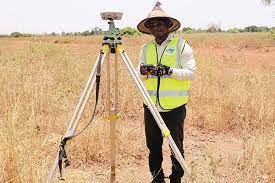
Surveying plays an essential role in estate management, as it helps to ensure accuracy when making decisions about a property or land. It is important to consider the size and shape of a property, as well as the surrounding area, to make the best decisions possible.
By using surveying, land and property owners can be certain that their decisions are based on accurate data. In this blog post, we will explore the importance of surveying in estate management and how it can benefit those involved.
Overview of estate management
Estate management refers to the overall administration and maintenance of a property, whether it be a residential, commercial, or industrial estate. It involves a wide range of responsibilities such as property maintenance, rent collection, lease management, and tenant relations.
Effective estate management requires a comprehensive understanding of the property, its surroundings, and the various regulations and laws governing its use. This is where surveying plays a crucial role. Surveying involves the measurement, analysis, and mapping of land and its physical features.
Surveying provides estate managers with accurate information about the boundaries, dimensions, and conditions of a property. This information is vital for effective decision-making, such as determining property boundaries, planning for development or renovations, and assessing the overall condition of the estate.
Furthermore, surveying helps identify any potential risks or issues with the property, such as encroachments, drainage problems, or structural weaknesses. This allows estate managers to address these issues proactively, preventing any future complications or legal disputes.
In summary, surveying is an essential component of estate management as it provides accurate and detailed information about the property, enabling effective decision-making and proactive maintenance. Without surveying, estate managers would be operating blind, risking financial losses and legal disputes.
Types of surveys in estate management
Surveying plays a crucial role in estate management, helping professionals gain an accurate understanding of the land and its characteristics. There are various types of surveys that are conducted in estate management to gather information and make informed decisions.
Let's explore some of the most common types of surveys used in estate management.
1. Topographic Surveys: These surveys map out the physical features and contours of the land, including elevation changes, existing structures, and natural features like rivers or lakes. Topographic surveys provide essential data for design and construction projects, allowing estate managers to understand the terrain and plan accordingly.
2. Boundary Surveys: Boundary surveys are conducted to determine the precise boundaries of a property. They involve identifying and marking the boundaries using physical markers such as fences or pins. These surveys help avoid boundary disputes and ensure that the estate is properly managed within its designated area.
3. Land Use Surveys: Land use surveys focus on documenting the current use and condition of the land. They help estate managers understand how the property is being utilized, whether it is residential, commercial, or agricultural. This information is valuable for making decisions regarding future land use and development.
4. Environmental Surveys: Environmental surveys assess the environmental conditions and potential risks associated with the estate. They examine factors such as soil quality, water sources, and the presence of hazardous materials. This information is crucial for managing and mitigating any environmental impacts that may arise from estate activities.
5. Feasibility Surveys: Feasibility surveys evaluate the suitability of a property for a particular purpose or development project. They assess factors such as access to utilities, transportation infrastructure, and zoning regulations. Feasibility surveys help estate managers determine the viability and potential profitability of a project before investing time and resources.
Benefits of surveying in estate management
Surveying is a vital process in estate management that provides several benefits to property owners, developers, and investors. These benefits include:
1. Identification of property boundaries: Surveying helps to establish accurate property boundaries, which is essential for preventing boundary disputes between neighbors and avoiding encroachments.
2. Determination of property topography: Surveying allows for the identification of property contours and the grading required for construction, drainage, and landscaping.
3. Assessment of land use potential: Surveying can provide an accurate picture of the potential uses of the land, taking into account natural features, environmental constraints, and local zoning regulations.
4. Property acquisition: Surveying is essential for prospective property owners looking to buy land or property, as it helps to ensure that the property they are purchasing is legally owned and accurately described.
5. Planning and development: Surveying is critical in the planning and development of real estate projects. Accurate survey data allows for the design of construction projects, including site preparation, layout, and grading, that meet local zoning regulations and building codes.
6. Property valuation: Surveying is also important in the valuation of real estate. Accurate survey data provides a basis for determining property values, which is important for securing financing, negotiating sales prices, and settling legal disputes.
Role of surveying in property valuation
Surveying plays a crucial role in property valuation within the realm of estate management. By conducting accurate surveys, professionals are able to assess the physical condition and worth of a property, ultimately determining its market value.
Surveying involves measuring and mapping various aspects of a property, such as land boundaries, structures, and infrastructure. This data is then used to evaluate the value of the property based on factors like location, size, condition, and amenities.
The role of surveying in property valuation goes beyond simply determining a price tag. It provides a comprehensive understanding of the property's characteristics and potential, allowing for informed decision-making in terms of investment, sales, and insurance purposes.
Surveying helps identify any potential issues or defects that may impact the property's value, such as encroachments or boundary disputes. It also plays a significant role in negotiations, as survey reports provide solid evidence to support valuation arguments.
In addition, surveying helps maintain fairness and transparency in property transactions. Buyers and sellers can rely on accurate valuations to ensure they are getting a fair deal. Lenders and insurance companies also heavily rely on surveying to assess the risk and determine the appropriate loan amount or insurance coverage.
Ultimately, surveying is an essential tool in property valuation that aids in making informed decisions, ensuring fairness, and mitigating risks for all parties involved in estate management.
Importance of surveying in property development and maintenance
Surveying plays a crucial role in property development and maintenance. Before any construction or development can take place, a survey is necessary to assess the condition of the land and identify any potential issues or limitations. This ensures that the property is developed in a safe and effective manner, adhering to all relevant regulations and standards.
During the development process, surveying helps in accurately mapping the boundaries of the property, ensuring that construction stays within the designated area and avoids any encroachment on neighboring properties. This helps to prevent disputes and legal complications in the future.
Surveying is also vital for property maintenance. Regular surveys can identify any structural issues, such as foundation problems or land movement, allowing for timely repairs and maintenance. This helps to preserve the value of the property and ensure the safety of its occupants.
Furthermore, surveying is important in the maintenance of property boundaries. Over time, property boundaries can become blurred or disputed, leading to conflicts between neighboring property owners. By conducting regular surveys and clearly marking the boundaries, potential disputes can be avoided and the property owners can have peace of mind.
Overall, surveying plays an integral role in property development and maintenance, ensuring that properties are developed safely, boundaries are accurately identified, and potential issues are addressed in a timely manner. It is a critical aspect of estate management that should not be overlooked.
Challenges and considerations in estate surveying
Estate surveying is a crucial aspect of estate management, but it is not without its challenges and considerations. These challenges can range from legal issues to environmental factors and can greatly impact the surveying process. Therefore, it is important for estate surveyors to be aware of these challenges and take them into account when conducting surveys.
One major challenge in estate surveying is the legal aspect. Surveyors must ensure that they are following all legal regulations and requirements when conducting their surveys.
This can involve obtaining the necessary permits and approvals, ensuring that boundaries are properly defined and adhered to, and complying with any zoning or land use regulations. Failure to adhere to these legal requirements can result in legal disputes and complications in the future.
Another challenge in estate surveying is the presence of environmental factors. This can include natural hazards such as floods or landslides, as well as environmental protection regulations. Surveyors must consider these factors when assessing the suitability of a property for development or maintenance. They may need to conduct additional tests or studies to ensure that the property is safe and environmentally sound.
Additionally, surveyors must also consider the accessibility and infrastructure of the estate. They need to assess whether the property has sufficient infrastructure in place, such as roads, water supply, and sewage systems.
They also need to consider the accessibility of the property, both for potential buyers or tenants and for maintenance purposes. In some cases, there may be logistical challenges in accessing certain areas of the estate, which can affect the overall assessment and valuation.
Overall, estate surveying comes with its fair share of challenges and considerations.
Surveyors must navigate through legal requirements, environmental factors, and accessibility issues to ensure that their surveys are accurate and reliable. By being aware of these challenges and taking them into account, surveyors can effectively carry out their role in estate management and contribute to the overall success and sustainability of the estate.






















